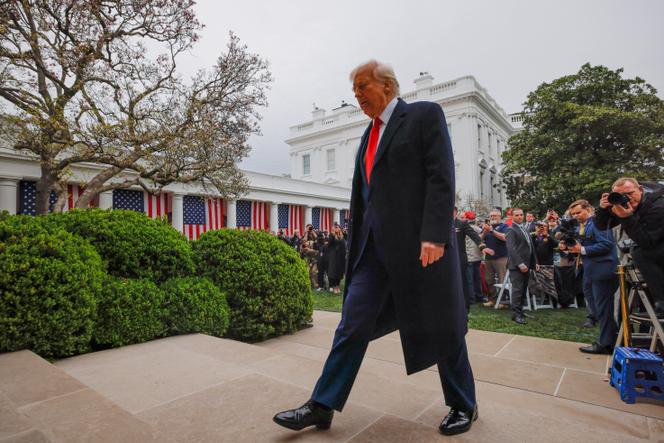

After weeks of blustering, threats, and backtracking, Donald Trump finally revealed the details of the arsenal of protectionist measures he intends to deploy to "Make America Wealthy Again," as stated in the title of the presentation he made on Wednesday, April 2, in the White House Rose Garden. By implementing "reciprocal" tariffs, the president of the United States claimed to want to correct years of "unfair" trade relations that have allowed other countries to "rip off" America. This narrative, steeped in paranoia, revenge, and coercion aimed at the rest of the world, promises to profoundly reshape international trade.
Though he has failed to convince observers of the merits of his policy, which has been contested by the vast majority of economists, Trump is still an expert when it comes to marketing, having proclaimed April 2 the US's "Liberation Day." Behind this bombastic slogan lies America's revenge, as it aims to impose respect by forcing its trade partners to either pay their dues or relocate their production to American soil.
A generalized minimum rate of 10% on exports to the US is imposed on all, with additional tariffs added country by country depending on the size of their trade surplus. Chinese products will thus be hit with 34%, those imported from the European Union (EU) at 20%, and the rate for Japan has been set at 24%. Trump said that these new taxes could be added to those already existing.
The method is problematic for three reasons. First, these tariff rates were calculated in a completely arbitrary manner. They were not only based on the tariff barriers implemented by the targeted countries, but also on other, more contentious criteria. Alleged "currency manipulation," standards and regulations, or even certain taxes (such as VAT, in Europe), which have been accused of disadvantaging the US, were taken into account. Engaging in a trade war is a serious decision. Doing so based on highly subjective criteria, which mix such disparate parameters together, indicates an astoundingly reckless attitude.

The second problem lies in the general climate of uncertainty that stems from these power plays. Trump reserves the right to adjust US tariffs based on trade partners' willingness to comply with American demands. This system of perpetual bargaining, based on terror and extortion, is not conducive to good business. Above all, industrialists and investors need certainty and stability to make decisions.
Finally, this "Liberation Day" could, more than anything else, throw the global economy into a recessionary spiral. Contrary to what Trump has claimed, the tariffs will not be paid by exporting countries but by American consumers, who will see prices rise. While predictions already show inflation on the rise, growth forecasts, as well as financial markets and the dollar, are trending downward.
In the face of this blatant aggression, many countries will not be able to remain passive and will be spurred to take retaliatory measures. The EU has already indicated that it would respond. This retaliation's effectiveness will depend on how much cohesion and determination it can muster. By wanting to abruptly draw a line under globalization, Trump is taking the risk of an uncontrollable escalation.
Translation of an original article published in French on lemonde.fr; the publisher may only be liable for the French version.
